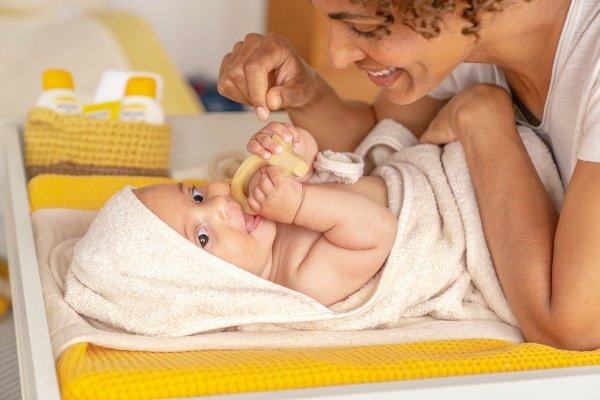Wen (Women’s Environmental Network) has today (14 June) launched the first ever Green Baby Day – a day of action calling for a sustainable and toxic-free future for babies and children, and their parents and carers.
The aim of Green Baby Day is to provide information to help families make healthy, eco-friendly and affordable choices to minimise exposure to harmful chemicals.
It also focuses the attention on our government’s responsibility to ensure effective chemicals regulation to protect current and future generations, especially post Brexit.
A Green Baby Day Action Toolkit is available for individuals, businesses and organisations to download.
There is also a free online event with guest speakers and a giveaway to win over £100 in Weleda baby products.
Why launch Green baby Day?
Exposure to toxic chemicals and pesticides is a feature of everyday lives in our homes, workplaces and in the wider environment.
There are tens of thousands of chemicals in regular commercial use, with little or no health and safety information.
Many of these chemicals can harm our health, the health of our children and that of future generations – including in our capacity to reproduce and reach our full potential.
Children are particularly vulnerable, but to the developing foetus even small exposures can have serious and lifelong health consequences – especially at specific times during gestation.
Prebirth or early-life exposure to certain chemicals has been linked to a range of diseases including cancer, birth defects, fertility, developmental, neurological and immune disorders.
Microplastics and harmful chemicals
Harmful chemicals can adversely impact our respiratory, reproductive, cardiovascular and urinary systems, and disrupt our endocrine system (which is our body’s messenger system controlling every aspect of life).
These chemicals – and even microplastics from consumer products – have a nasty habit of ending up where they shouldn’t.
Recent examples include microplastic in baby poo and the 109 toxic chemicals – such as flame retardants, cosmetics ingredients and plasticisers – found in maternal and umbilical cord blood, including 55 that had never been found in people before.
Even everyday cleaning products like laundry detergents can release harmful, air-polluting chemicals in the form of volatile organic compound (VOCs), which have been linked to asthma, cancer and developmental harm.
 Play Video about This Rock Might Just Save The World
Play Video about This Rock Might Just Save The World Play Video about Play 2 hours of rock
Play Video about Play 2 hours of rock Play Video about Play 2 hours of brook
Play Video about Play 2 hours of brook Play Video about Play 2 hours of sheep
Play Video about Play 2 hours of sheep











































